Nigeria; Contingency funds of N984 million ($2.7 million) have been released to Nigeria’s Center for Disease Control, and an additional N6.5 billion ($18 million) was distributed for purchasing more testing kits, opening isolation centers and training medical personnel. Grant of N10 billion ($28 million) was released to the Lagos State to increase its capacity to contain the outbreak.
A fiscal stimulus package in the form of a COVID-19 intervention fund of N500 billion ($1.4 billion), has been approved by the President to support healthcare facilities, provide relief for taxpayers, and incentivize employers to retain and recruit staff during the downturn.
Import duty waivers for pharmaceutical firms will be introduced. Regulated fuel prices have been reduced, and an automatic fuel price formula introduced to ensure fuel subsidies are eliminated. The President also ordered an increase of the social register by 1 million households to 3.6 million to help cushion the effect of the lockdown.
Egypt; The government has announced stimulus policies in the $6.13 billion package (EGP 100 billion, 1.8 percent of GDP) to mitigate the economic impact of COVID-19. Pensions have been increased by 14 percent.
A targeted support initiative for irregular workers in most severely hit sectors has been announced, which will entail EGP 500 in monthly grants for 3 months. To support the healthcare sector, EGP 8 billion has been allocated, targeted at providing urgent and necessary medical supplies, and disbursing bonuses for medical staff working in quarantine hospitals and labs.
To support medical professionals, including doctors working in university hospitals, a 75 percent allowance over the wages has been announced. Energy costs have been lowered for the entire industrial sector; real estate tax relief has been provided for industrial and tourism sectors; and subsidy pay-out for exporters has been stepped up, discount on fuel price has been announced for the aviation sector As part of the EGP 100 billion stimulus, EGP 50 billion has been announced for the tourism sector, which contributes close to 12 percent of Egypt’s GDP, 10 percent of employment, and almost 4 percent of GDP in terms of receipts, as of 2019.
The moratorium on the tax law on agricultural land has been extended for 2 years. The stamp duty on transactions and tax on dividends have been reduced. Capital gains tax has been postponed until further notice.
Read also; Saudi Arabia to Voluntarily Cut Oil Production by Extra 1 Million Barrels per Day: Energy Ministry
Ghana; The government committed US$100 million to support preparedness and response, and about US$210 million under its Coronavirus Alleviation Programme to the promotion of selected industries (e.g., pharmaceutical sector supplying COVID-19 drugs and equipment), the support of SMEs and employment, and the creation of guarantees and first-loss instruments .
Additional funds have been earmarked to address availability of test kits, pharmaceuticals, equipment, and bed capacity. On April 26, a major investment in healthcare infrastructure was announced, including the construction or upgrade of 100 district and regional hospitals
Ethiopia; initially announced a Br 300 million package to bolster healthcare spending in early March. On March 23, the Prime Minister announced the aid package would be increased to Br 5 billion (US$154 million or 0.15 percent of GDP) but details on the precise modalities of the assistance were not made available. On April 3, the Prime Minister’s office announced a COVID-19 Multi-Sectoral Preparedness and Response Plan, with prospective costing of interventions.
The plan is to be implemented over the next three months and will require US$1.64 billion in funding (about 1.6 percent of GDP). The funds are expected to be allocated as follows: (i) $635 million (0.6 percent of GDP) for emergency food distribution to 15 million individuals vulnerable to food insecurity and not currently covered by the rural and urban PSNPs; (ii) $430 million (0.4 percent of GDP) for health sector response under a worst-case scenario of community spread with over 100,000 COVID-19 cases of infection in the country, primarily in urban areas; (iii) $282 million (0.3 percent of GDP) for provision of emergency shelter and non-food items; (iv)The remainder ($293 million, 0.3 percent of GDP) would be allocated to agricultural sector support, nutrition, and so on.
Kenya; The government has earmarked Ksh40 billion ($376.7 million) (0.4 percent of GDP) in funds for additional health expenditure, social protection and cash transfers; food relief; and funds for expediting payments of existing obligations to maintain cash flow for businesses during the crisis.
A package of tax measures has been adopted, including full income tax relief for persons earning below the equivalent of $225 per month, reduction of the top pay-as you earn rate from 30 to 25 percent, reduction of the base corporate income tax rate from 30 to 25 percent, reduction of the turnover tax rate on small businesses from 3 to 1 percent, and a reduction of the standard VAT rate from 16 to 14 percent.
United Arab Emirates (UAE); The authorities have so far announced about AED 26.5 billion ($ 7.2 billion or 2 percent of GDP) in various fiscal measures.
These include: (i.) AED 16 ($4.4 billion) approved by the federal government to support the private sector by reducing various government fees and accelerating existing infrastructure projects; (ii.) AED 1.5 billion ($0.4 billion) in measures by the government of Dubai to reduce government fees, provide additional water and electricity subsidies, and simplify business procedures; and (iii.) AED 9 billion ($2.5 billion) announced by the government of Abu Dhabi as part of the ongoing “Ghadan-21” fiscal stimulus program.
The new initiatives provide for water and electricity subsidies as well as credit guarantees and liquidity support to small- and medium-sized enterprises. In addition, the government of Abu Dhabi has announced a reduction or suspension of various government fees and penalties, as well as a rebate on commercial lease payments in the tourism and hospitality sectors.
Read also; Coronavirus Update – Death toll rises by 11.72% as Nigeria records 248 new cases
United Kingdom (UK); Tax and spending measures include: (i) additional funding £14.7 billion for the NHS, public services and charities (ii) £27 billion measures to support businesses including compensation for sick pay leave; and (iii) nearly £7 billion strengthening the social safety net to support vulnerable people by increasing payments under the Universal Credit scheme as well as expanding other benefits.
It is also deferring VAT payments for the second quarter of 2020 until the end of the financial year and income tax payments of the self-employed by six months; and will pay 80 percent of the earnings of self-employed workers and furloughed employees (to a maximum of £2,500 per employee per month) for an initial period of 3 months (for the latter extended further by one month).
United States of America (USA); · US$484 billion Paycheck Protection Program and Health Care Enhancement Act . This includes forgivable loans and grants for small businesses, funds for hospitals and funds for expanding virus testing.
- An estimated US$2.3 trillion (around 11% of GDP) Coronavirus Aid, Relief and Economy Security Act (“CARES Act”) . The Act includes (i) US$250 billion to provide one-time tax rebates to individuals; (ii) US$250 billion to expand unemployment benefits; (iii) US$24 billion to provide a food safety net for the most vulnerable; (v) US359 billion in forgivable Small Business Administration loans and guarantees to help small businesses that retain workers; (vi) US$100 billion for hospitals, among other things.
- US$8.3 billion Coronavirus Preparedness and Response Supplemental Appropriations Act and US$192 billion Families First Coronavirus Response Act . They together provide around 1% of GDP for: (i) Virus testing; (ii) 2 weeks paid sick leave; up to 3 months emergency leave for those infected (at 2/3 pay. In addition, federal student loan obligations have been suspended for 60 days
South Korea: On March 17, the National Assembly passed the 1st 2020 supplementary budget. The supplementary budget includes a decline in revenue by KRW 0.8 trillion, and additional KRW 10.9 trillion spending on disease prevention and treatment, loans and guarantees for business affected, support for households affected, and support for local economies affected.
On April 30, the National Assembly passed the 2nd 2020 supplementary budget. The supplementary budget includes an increase in spending by KRW 8 trillion to fund an emergency relief payment program of KRW 14.3 trillion that provides transfers to households.
On April 22, the government announced additional KRW 10.1 trillion spending on wage subsidies and assistance for the unemployed.
Italy; On March 17, the government adopted a €25 billion (1.4 percent of GDP) “Cura Italia” emergency package. It includes (i) funds to strengthen the Italian health care system and civil protection (€3.2 billion); (ii) measures to preserve jobs and support income of laid-off workers and self-employed (€10.3 billion); (iii) other measures to support businesses, including tax deferrals and postponement of utility bill payments in most affected municipalities (€6.4 billion); as well as (iv) measures to support credit supply (€5.1 billion).
On April 6, the Liquidity Decree allowed for additional state guarantees of up to €400 billion (25 percent of GDP). The guarantee envelope from this and earlier schemes is aimed to unlock more than €750 billion (close to 50 percent of GDP) of liquidity for businesses and households. The authorities indicated that further fiscal measures are being considered.
These figures are as at 7, 8 May 2020 and are extract from the IMF report.
Compiled by:
Ifunanya Ikueze.











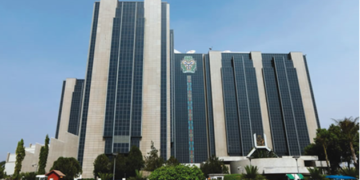
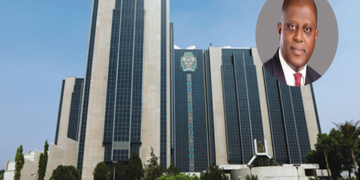






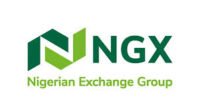

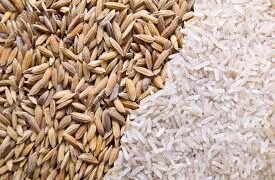
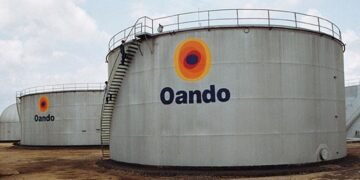



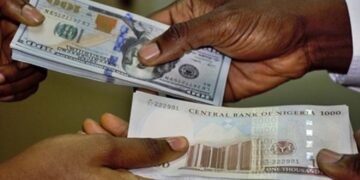




























Nice breakdown. Well done.